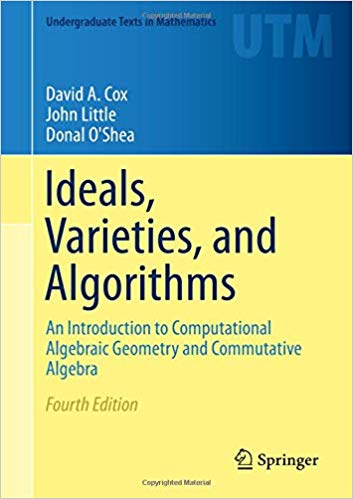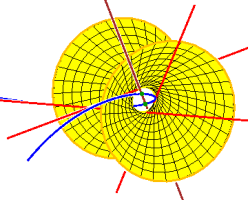Course description:
This course will cover the basics of computational algebraic geometry,
including the core algorithms in the subject, as well as introduce
some of the most common algebraic varieties which occur in applications.
We will gain familiarity with software for algebraic geometry, including the systems
Macaulay 2,
Singular.
Students will complete a final project in the subject which will be presented to the class.
Grading will be based on final projects and some written/computer work through the term.
Expected topics to cover:
- Algebraic-geometric dictionary
- Resultants and elimination
- Gröbner bases, including algorithms based on Groebner bases
- Solving polynomial systems symbolically
- Solving systems of polynomial equations using numerical continuation
- Certification of numerical solutions. Smale's α-theory
- Numerical algebraic geometry. Witness sets and numerical irreducible decomposition
- Real root counting. Sturm's theorem. Fewnomial theory
- Toric ideals
- Toric degenerations and Khovanskii bases
- The last three topics may be covered, depending upon time and energy
Resources:
Here are some chapters from a book I am writing on
Algebraic geometry for applications:
Notes on The Algebraic-Geometric Dictionary
Notes on symbolic computation.
You are also welcome to get your hands on the the award-winning
Ideals, Varieties, and Algorithms by David Cox, John Little, and Donal O'Shea.
In particular it contains all the algebraic preliminaries, and is a great resource.
It assumes minimal prerequisites, and may not be completely at the level of this
class, but it is well worth reading.
Any edition is fine, and you may have access to an electronic version through your library.
|
|

|

